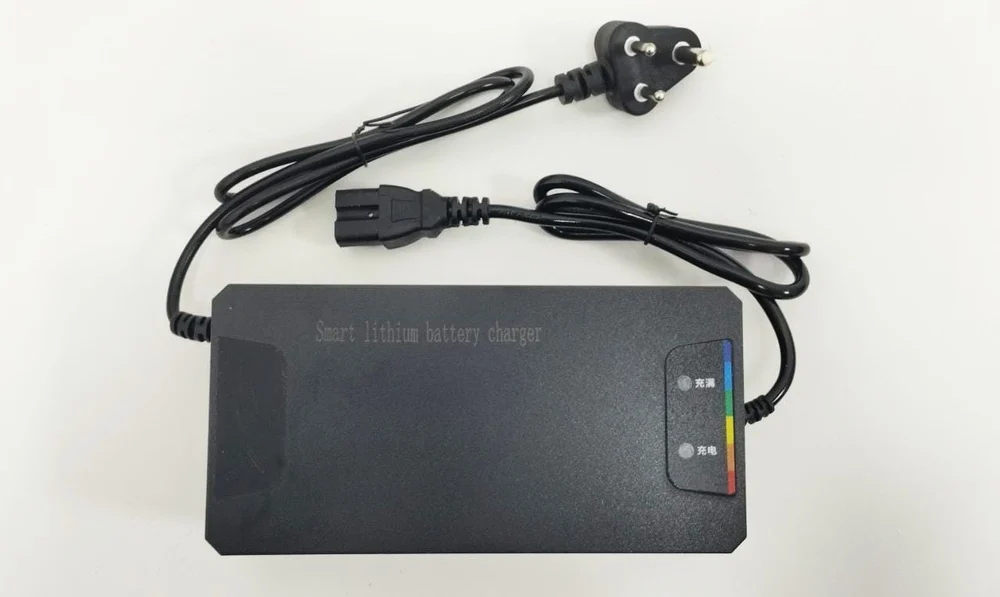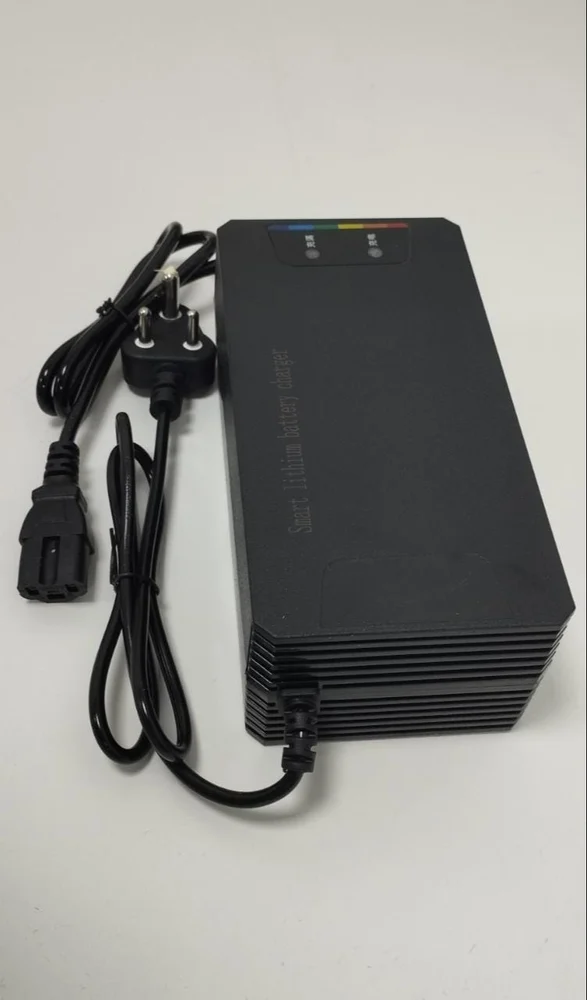Imported EV Bike Charger/ E-Scooter Charger 71.4V 6AMP
₹1,400.0
Product Specification
| Output Voltage | 72 V |
| Vehicle Type | Bike |
| Usage/Application | EV Bike And E-Scooter |
| Brand | Imported |
| Battery Type | NMC/LFP |
| Warranty | no |
| Battery Voltage | 71.4v |
| Current | 6amp |
| Pin Type | 3pin |
| Color | Black |
| Material | ABS |
| Wheels Available | No |
| Cooling Fan | No |
| Minimum Order Quantity | 1 |
Product Description
We have NMC/ LFP/ Lead acid type Chargers available for more enquiry contact us.
- Description
- Additional information
- Reviews (0)
- Q & A
- Sustainability Remark
- More Offers
- Store Policies
- Inquiries
| brands | Imported |
|---|---|
| Color | Black |
You must be logged in to post a review.
Q & A
The sustainability of electric vehicle (EV) chargers depends on several factors, including the source of electricity used, the charger's energy efficiency, and the materials used in its production and operation. Here are some considerations regarding the sustainability of EV chargers:
Energy Source: The environmental impact of EV charging largely depends on the source of electricity. If the electricity is generated from renewable sources like solar, wind, or hydroelectric power, the charging process becomes more sustainable. However, if the electricity comes from fossil fuel-based power plants, it can contribute to greenhouse gas emissions and air pollution.
Energy Efficiency: The efficiency of the charging process affects its sustainability. Higher efficiency means less wasted energy during the conversion process, reducing overall energy consumption and environmental impact. Modern EV chargers have improved energy efficiency compared to older models.
Grid Integration: Smart charging infrastructure and grid integration technologies can enhance sustainability. These technologies enable charging stations to communicate with the grid, optimizing charging times to match periods of low demand or high renewable energy availability. This helps balance the grid and maximize the utilization of renewable energy resources.
Material Selection: The choice of materials used in manufacturing EV chargers can impact their sustainability. Opting for materials with lower environmental footprints, such as recycled or responsibly sourced metals and plastics, can reduce their overall impact. Additionally, designing chargers for longevity and recyclability can minimize waste generation.
Life Cycle Assessment: Conducting a life cycle assessment (LCA) of EV chargers helps evaluate their overall environmental impact. This assessment considers factors like raw material extraction, manufacturing, use, and end-of-life disposal. By identifying environmental hotspots, LCA can guide improvements in charger design and operation.
Deployment Strategy: The strategic placement of chargers can optimize their utilization and reduce the need for extensive infrastructure development. Installing chargers in locations that support multi-modal transportation, such as public transport hubs, workplaces, and shopping centers, encourages shared and sustainable mobility.
Future Innovations: Ongoing research and development are focused on improving the sustainability of EV chargers. This includes advancements in energy storage, wireless charging technologies, and integration with renewable energy systems. These innovations aim to make EV charging more efficient and environmentally friendly.
It's important to note that while EV chargers play a vital role in enabling sustainable transportation, achieving a truly sustainable future also requires progress in renewable energy generation, battery technology, and overall decarbonization of the electricity sector.
General Inquiries
There are no inquiries yet.







Reviews
There are no reviews yet.